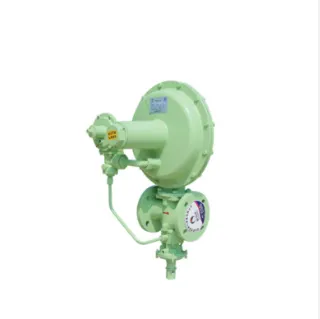
Feb . 26, 2025 14:59
Back to list
The Importance of Commercial Regulators in Modern Systems
Regulators are critical components in various systems, from industrial machinery to household appliances, ensuring that the pressure of gas or liquids is kept at optimal levels for safe and efficient operation. The commercial regulator, pressure regulator, and gas regulator are just a few examples of the various types of regulators designed to maintain safety and efficiency. This article will delve into each of these key regulators, their functionality, and their importance in different applications.

The Role of a Commercial Regulator in Business Operations
A commercial regulator is a device used primarily in businesses and industries that need to regulate the pressure of gases or liquids within systems. These regulators are often found in manufacturing, chemical processing, and other industrial environments where precise pressure control is necessary. The commercial regulator ensures that equipment operates within the desired pressure range, preventing damage to machinery and ensuring smooth workflow in factories, plants, and refineries.
For instance, in a manufacturing plant, the commercial regulator is responsible for controlling the pressure of air or gas used to power machinery. If the pressure is too high or too low, equipment can malfunction, leading to expensive repairs or production delays. By regulating pressure accurately, the commercial regulator helps to minimize these risks, ensuring that the system operates at peak performance. This regulation not only extends the lifespan of machinery but also contributes to the safety and efficiency of the overall production process.
Understanding the Functionality of a Regulator
A regulator is a device designed to control and maintain the pressure of gases or liquids within a specific system. It works by reducing the high pressure from a source, such as a gas cylinder or pipeline, to a level suitable for use by the equipment connected to it. Regulators are commonly used in both industrial and residential applications, ensuring a steady flow of gas or liquid at a safe, consistent pressure.
The primary function of a regulator is to reduce the input pressure, but it also stabilizes fluctuating pressures, ensuring that systems function smoothly and efficiently. Regulators are equipped with a diaphragm or spring mechanism that adjusts the pressure based on the set point. This dynamic ability to adjust pressure makes regulators indispensable in various sectors, including HVAC systems, pneumatic machinery, and medical gas systems, where precise pressure control is necessary for safe operation.
The Essential Role of a Pressure Regulator in Safety
A pressure regulator is designed to maintain a constant output pressure, regardless of fluctuations in the supply pressure. These devices are essential in preventing over-pressurization, which could lead to equipment failure, leaks, or even hazardous situations. The pressure regulator ensures that the pressure in the system remains within the specified range, thus protecting equipment and personnel from potential danger.
In industrial settings, a pressure regulator is crucial for systems such as air compressors, where maintaining consistent pressure is necessary to ensure the smooth operation of machinery. For example, if the pressure is too high, it could cause valves or hoses to burst, leading to system breakdowns. Conversely, if the pressure is too low, the equipment may not perform as intended. By providing accurate pressure control, the pressure regulator enhances safety and reduces the risk of costly repairs.
How a Gas Regulator Ensures Safe Gas Distribution
A gas regulator is a specialized type of regulator that controls the pressure of gases in a variety of applications. These devices are particularly important in industries that handle flammable or hazardous gases, such as in the oil and gas industry, laboratories, or restaurants that use gas stoves. The gas regulator ensures that the gas entering the system is at a safe pressure, preventing dangerous leaks or explosions.
In household applications, gas regulators are used to control the flow of natural gas or propane to stoves, heaters, and other appliances. They ensure that the gas pressure is within a safe range, preventing excessive pressure from causing leaks or unsafe conditions. By maintaining stable gas pressure, the gas regulator helps avoid dangerous situations and contributes to the safe use of gas-powered appliances.
For industrial applications, the gas regulator is often designed to handle higher pressures, making it suitable for large-scale operations. It ensures that the gas supplied to equipment is delivered at a pressure that allows the machinery to perform efficiently without overloading or damaging the system.
Choosing the Right Regulator for Your Needs
Selecting the right type of commercial regulator, regulator, pressure regulator, or gas regulator depends on the specific requirements of the application. Different industries and systems require varying pressure levels, flow rates, and materials to ensure proper function. For example, a commercial regulator used in a factory will have different specifications than a gas regulator used in a residential kitchen.
When choosing a regulator, it’s important to consider factors such as the type of gas or liquid being regulated, the range of pressures required, and the compatibility of the device with existing equipment. It’s also essential to evaluate the durability and reliability of the regulator to ensure that it can withstand the demands of the specific application. Regular maintenance and proper installation are also key to maximizing the lifespan and performance of these critical components.
In conclusion, whether it’s a commercial regulator, pressure regulator, or gas regulator, these devices play a vital role in ensuring the safety, efficiency, and longevity of various systems. Understanding their functionality and choosing the right one for your needs is essential for maintaining optimal performance and preventing costly failures.
Latest news
-
Safety Valve Spring-Loaded Design Overpressure ProtectionNewsJul.25,2025
-
Precision Voltage Regulator AC5 Accuracy Grade PerformanceNewsJul.25,2025
-
Natural Gas Pressure Regulating Skid Industrial Pipeline ApplicationsNewsJul.25,2025
-
Natural Gas Filter Stainless Steel Mesh Element DesignNewsJul.25,2025
-
Gas Pressure Regulator Valve Direct-Acting Spring-Loaded DesignNewsJul.25,2025
-
Decompression Equipment Multi-Stage Heat Exchange System DesignNewsJul.25,2025

